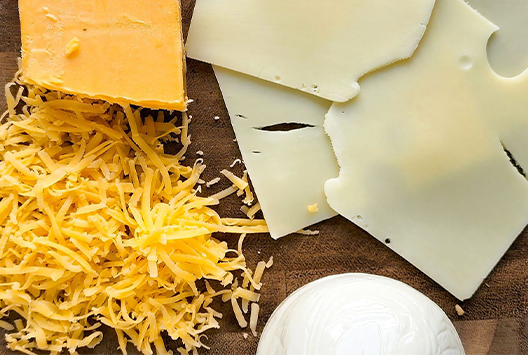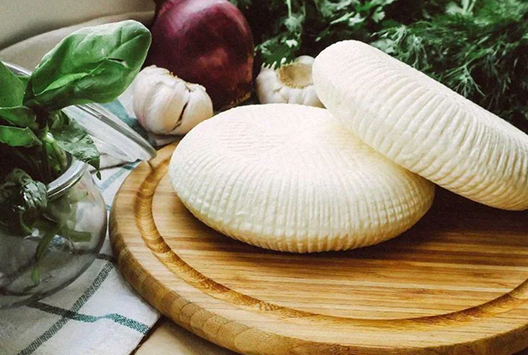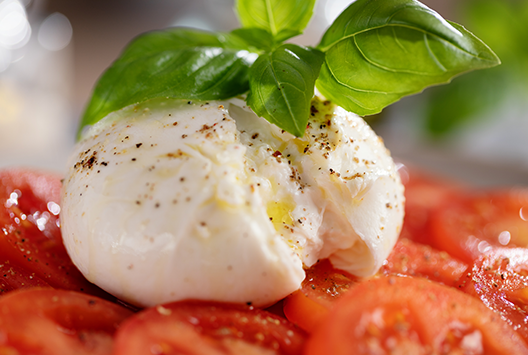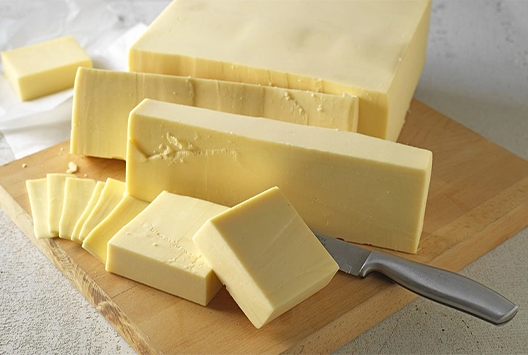
6 Cheese Facts More People Should Know About
Similar
Cheese is a delicious and versatile food that has been enjoyed by people worldwide for centuries. Cheese is made from the milk of various animals, including cows, goats, and sheep. The first step in making cheese is pasteurizing the milk, which involves heating it to a specific temperature to kill harmful bacteria. Once the milk has been pasteurized, it is cooled and mixed with rennet, an enzyme that causes it to coagulate and form curds, eventually turning into the cheese we eat. However, few people know much about cheese, so we will discuss some facts you should know below:
#1 - Cheese should be eaten sparingly
You don't need to eliminate cheese from your diet completely. However, suppose you suffer from high cholesterol or high blood pressure. In that case, it's best to consume high-fat cheeses in moderation because certain roquefort, halloumi, feta, and cheese singles can be saltier than seawater. Cheese does, however, provide calcium and protein, making it acceptable in moderate amounts.
To avoid temptation, maintain smaller servings of cheese and measure their weight. Opt for cheeses with a lower fat content like mozzarella, feta, cottage cheese, or those labeled as reduced-fat, as they contain lower amounts of saturated fat.
#2 - Cheese can be addictive
Studies indicate that casein, a protein in dairy products and particularly abundant in cheese, produces opiates known as casomorphins during digestion. These opiates can indirectly provide a sense of comfort to the brain through hormones. If you consume a large amount of cheese, you might become used to its salty taste or develop a routine of eating it at specific times. Therefore, paying attention to your eating habits and slowly decreasing your cheese consumption is essential.
#3 - Goat cheese is better than cow cheese
Soft goat cheese has around 26g of fat per 100g, comparable to brie and edam, and roughly the same salt content as camembert. It is classified as a high-fat item, while cheeses like mozzarella, ricotta, and feta, typically made from sheep's milk or a blend of sheep's and goat's milk, have lower fat content.
Goat cheese is often considered a better option for those with lactose intolerance compared to soft cow's milk cheeses. While it has a similar lactose content to semi-soft cheeses like brie or feta, it contains less lactose than moister cheeses such as ricotta and cottage cheese.
#4 - Cheese can help keep the bones strong
Cheese is an excellent source of calcium. For example, a 30g serving of cheddar supplies more than 25% of an adult's daily needs. Nonetheless, other dairy products like yoghurt and milk are equally beneficial for bone health and contain less fat and salt. Cheese also has a minor quantity of vitamin D, a fat-soluble nutrient that aids calcium absorption from our diet. Dairy products with less fat, like semi-skimmed milk, have lower amounts of vitamin D than full-fat cheese.
#5 - Reduced-fat cheese is a valid option
Remember that "reduced fat" does not automatically mean "low fat.” It simply indicates that the fat content is 25% lower than in the original version. To determine if the fat content is high (over 17.5g/100g), medium (3.1-17.5g/100g), or low (3g or less/100g), be sure to check the product's label.
Additionally, you can cook and bake using low-fat cheese, but remember that it might take longer for low-fat hard cheese varieties to melt. To help with melting, grate the cheese finely and use low heat. When baking or grilling, these cheeses might create skin, so adding them closer to the end of the cooking time is better.
#6 - Grated cheese is better than sliced
Many people use a smaller amount of cheese when grating it. A typical pre-sliced cheese weighs around 20-30 grams, and several slices are often used in a sandwich. However, you must be mindful of the portion size when grating cheese for use in sauces, toasted sandwiches, or baked potatoes, as it's pretty simple to use an excessive amount unintentionally.
Say Cheese!
Cheese is a delicious and beloved food enjoyed by people worldwide. However, it's essential to consume it in moderation and be aware of its nutritional value because it can be high in calories, fat, and sodium.
If you are looking for high-quality dairy products, Baladna has what you need! We offer various healthy products, such as cheeses, yoghurt, milk, and fruit juices, all at affordable prices. Call us today at +974 4035 8888 to place an order!



